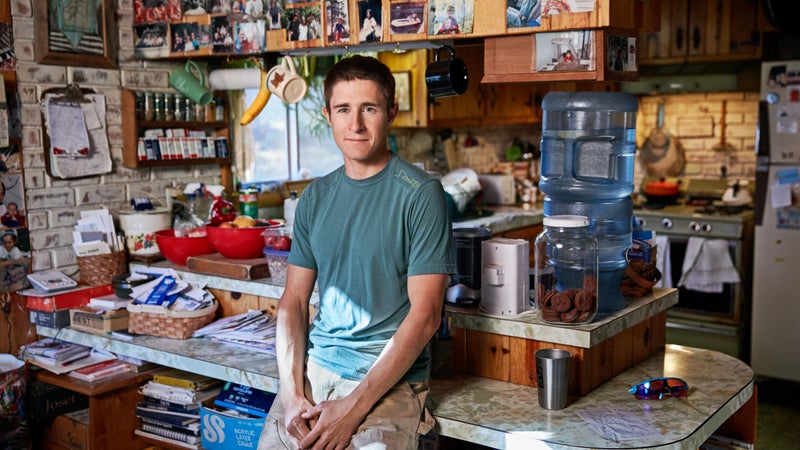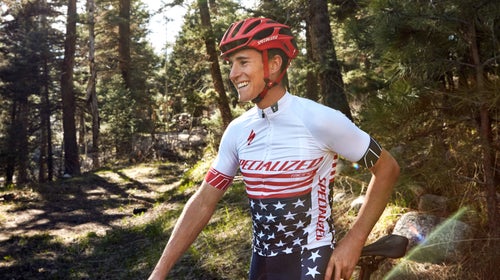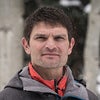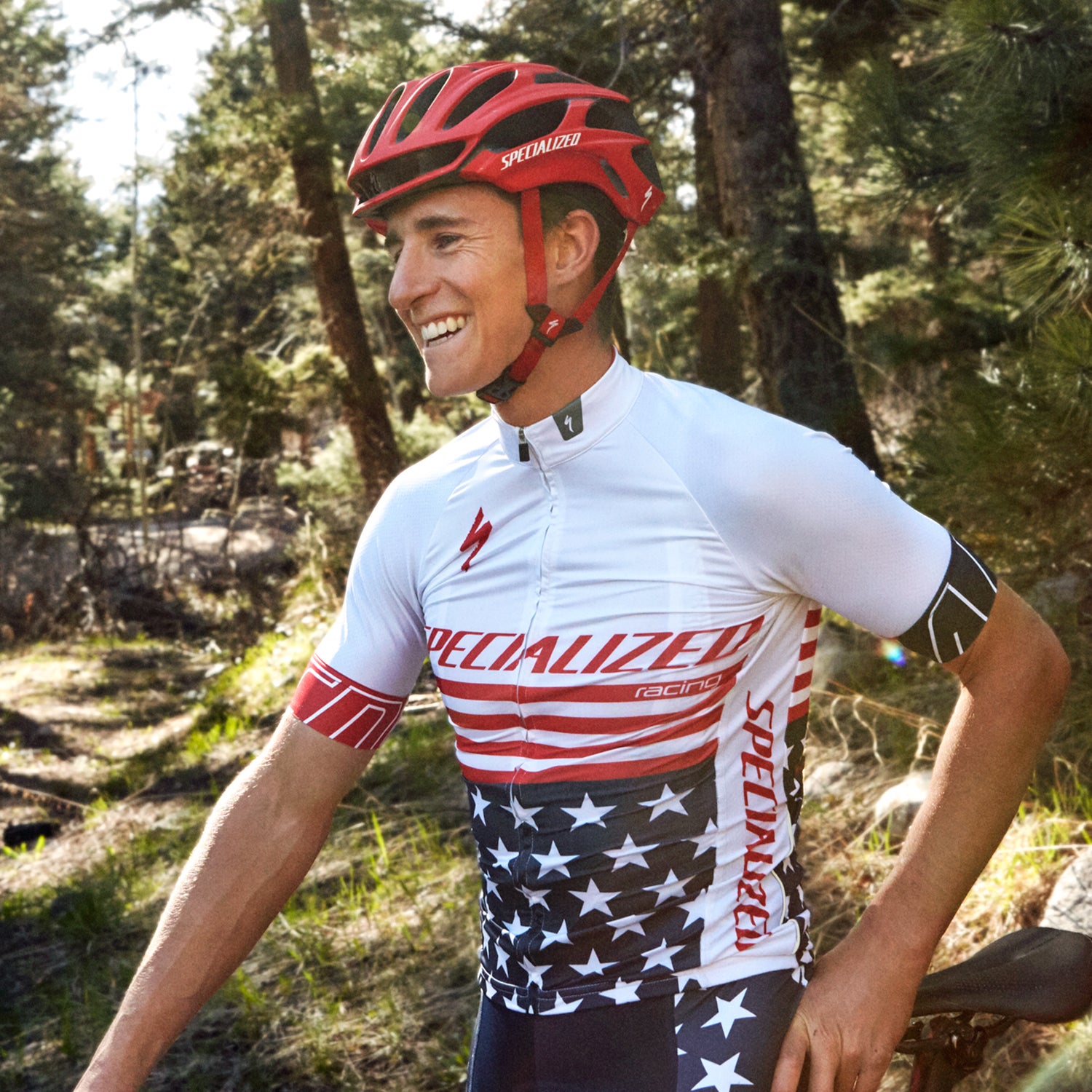Midway through last summer’s 24-mile U.S. national championship cross-country mountain-bike race at Mammoth Mountain, California, Howard Grotts, 23, tagged a rock. Air hissed out of his rear tire. He considered changing the wheel but instead ducked into the pits for a shot of CO2, gambling that the pressure would hold through the race. When he started again 30 seconds later, he’d dropped from second place to sixth.
Then Grotts showed why he’s America’s best hope to someday win an Olympic mountain-biking medal. He accelerated so explosively that another racer said it felt like Grotts was moving twice as fast as everyone else. The fact that he accomplished this at 8,500 feet, where the thin air makes decisive bursts hard to produce, only amplified the shock among competitors and spectators. “Everyone kind of gasped at his speed,” recalls Ned Overend, arguably the greatest mountain-bike racer in U.S. history.��
Grotts made up the gap in minutes, then took the lead for the final eight miles, which were by far his fastest of the day. He went on to win by more than a minute, becoming the youngest national champion since 1988.
“His anaerobic ability is amazing,” says USA Cycling national-team manager Marc Gullickson. The win at Mammoth was by no means a fluke. Two years ago, during the race for the U23 title in Norway, Grotts vaulted from 38th place to third—the first medal in a world-championship event by an American man since 2001.��
To succeed on the biggest stages, however, the Durango, Colorado, native will need more than just a good engine. He’ll need tactics. This year is his first racing in the World Cup’s Elite division, and he’s struggled with the raucous mass starts. Still, he could notch the best-ever U.S. men’s result in the Olympics.
For Grotts, however, the joys and challenges of reaching the highest levels of the sport have been accompanied by family tragedy. What do you do when the climactic moments of your career collide with unimaginable sorrow?

Grotts never would have started mountain biking if not for his older brother, Donnie. When they were kids, their father, Don, a veterinarian, took them to compete in the local Four Corners Cup series. Howard was six years younger and idolized Donnie’s technical skills on a mountain bike. Howard’s childhood coach, Chad Cheeney, says that he thought Donnie would become the star competitor, not Howard.��
But by the time Howard started racking up wins in local and regional races as a young teenager, Donnie had lost interest. Around the start of high school, he stopped riding and started experimenting with drugs—first marijuana, then heroin. He moved out at 18, and Howard and his parents felt Donnie gradually slipping away into addiction.��
It was hard on Howard. He pined for brotherly adventures but coped by building a wall between himself and his brother. “The addiction was too much for me,” he says. No one ever saw them together. If Cheeney asked about Donnie, Howard’s reply would be curt: “He’s still using drugs, still making bad decisions.”
Racing provided Howard with an escape into a predictable routine as Donnie spiraled downward. Starting in 2013, Donnie overdosed at least five times and was revived at Mercy Regional Medical Center in Durango.��
June 9, 2015, was Donnie’s 28th birthday. His mother, Debbie, and Don both called to wish him well, but neither got an answer. The next day, Don received a call from his sister: someone had posted “RIP Donnie” on Facebook. Soon a Durango detective confirmed that Donnie’s roommate had found him several hours earlier, dead of a heroin overdose.
Nine days after viewing his brother in the mortuary, Grotts entered the 18.6-mile Missoula Pro XCT, a U.S. Cup race in Montana. His strategy is usually to bide his time and make a move late. But that day he broke from the pack immediately. “Everyone knew two minutes into the race that we were riding for second,” says Payson McElveen, a hometown friend and pro who took 13th. Grotts rode the entire race alone, accelerating up until the end. He won by nearly five minutes, a huge margin in such a short race.��
“It was one of the greatest performances I’ve ever seen,” McElveen says. Afterward, Grotts told the Missoulian, “Everything I did out there, the race, everything, was for him.”
Grotts has long been known as a lone wolf when it comes to training. “He’s not looking for me to validate him,” says his coach, Ben Ollett. He also doesn’t study his power meter or count calories the way other elite riders do. During the last off-season, he stayed in shape by climbing peaks around Durango, pedaling 2,400 miles solo from Colorado to San Diego and up the California coast, and hitting the trails in winter for 25-mile runs.
Of course, others doubt whether such a freewheeling approach is best. Christoph Sauser, Grotts’s Swiss colleague on the Specialized team and the 2008 world champion, says Grotts “is a superclimber.” But, Sauser believes, he doesn’t train his weaknesses or focus enough on racing. “For lots of Americans, it’s difficult to transition to racing in Europe and really be eager to be world-class and not just American-class,” he says. “Howard has to change his head.”
Grotts concedes that his approach is unconventional but insists that it works for him. Last January, I met him for a mountain-bike ride in Tucson, Arizona, where he was training for the World Cup season. There’s more muscle on his five-seven, 130-pound frame than you might expect in a cyclist. Earlier that morning, he had intended to join a road ride with local pros, but he’d overslept.��
So he drove to a popular 4.8-mile trail that climbs 3,300 vertical feet, laced up his running shoes, and set a new record on Strava, shaving five minutes off the 46-minute KOM.
After our ride, Grotts and I sat in his car as he fought back tears and talked about how Donnie’s death has affected him. “There’s no ‘What if I’d talked to him more?’ It would’ve had to come from himself to change,” Grotts says. “But obviously you always wish that you could’ve… just been with him more. Even if he was going to die no matter what.”
Leading up to Rio, Grotts has been living with his parents in the log and cinder-block cabin at Lemon Lake where he grew up, 18 miles northeast of Durango. Debbie always held out hope that Donnie would get better and that he and Howard would reconnect on a long ride through the mountains. “That was my dream,” she told me. “I know Donnie would have loved that.” When Howard’s career took off last summer, the family found themselves wedged between celebration and heartbreak. “It’s all very bittersweet,” Debbie says.��
It’s been 25 years since an American man won the cross-country World Championship. (The last was John Tomac in 1991.) During that time, plenty of prodigies have burned out, while others chased better paychecks in road racing. Grotts will never leave trails for asphalt, he says, but he also isn’t sure how long he intends to compete. That’s one result of his brother’s death. “It makes you want to listen to what your heart’s really saying, rather than just maybe what the logical thing to do is,” Grotts says. Which means this could be his only Olympics.
Grotts graduated in 2014 with a 4.0 GPA from Durango’s Fort Lewis College and talks about teaching middle school math after bikepacking through South America. “He feels like we have bigger obligations than trying to go fast on a bike,” says McElveen.
As for his Olympic chances, Grotts wants one thing made clear: he was a good bike racer before Donnie died, and his motivation still comes from the same place—within. “I race to do the best I can,” he says. “But it’s not like I live to win.”
This article has been updated to reflect the fact that Grotts was selected for the U.S. team.��


